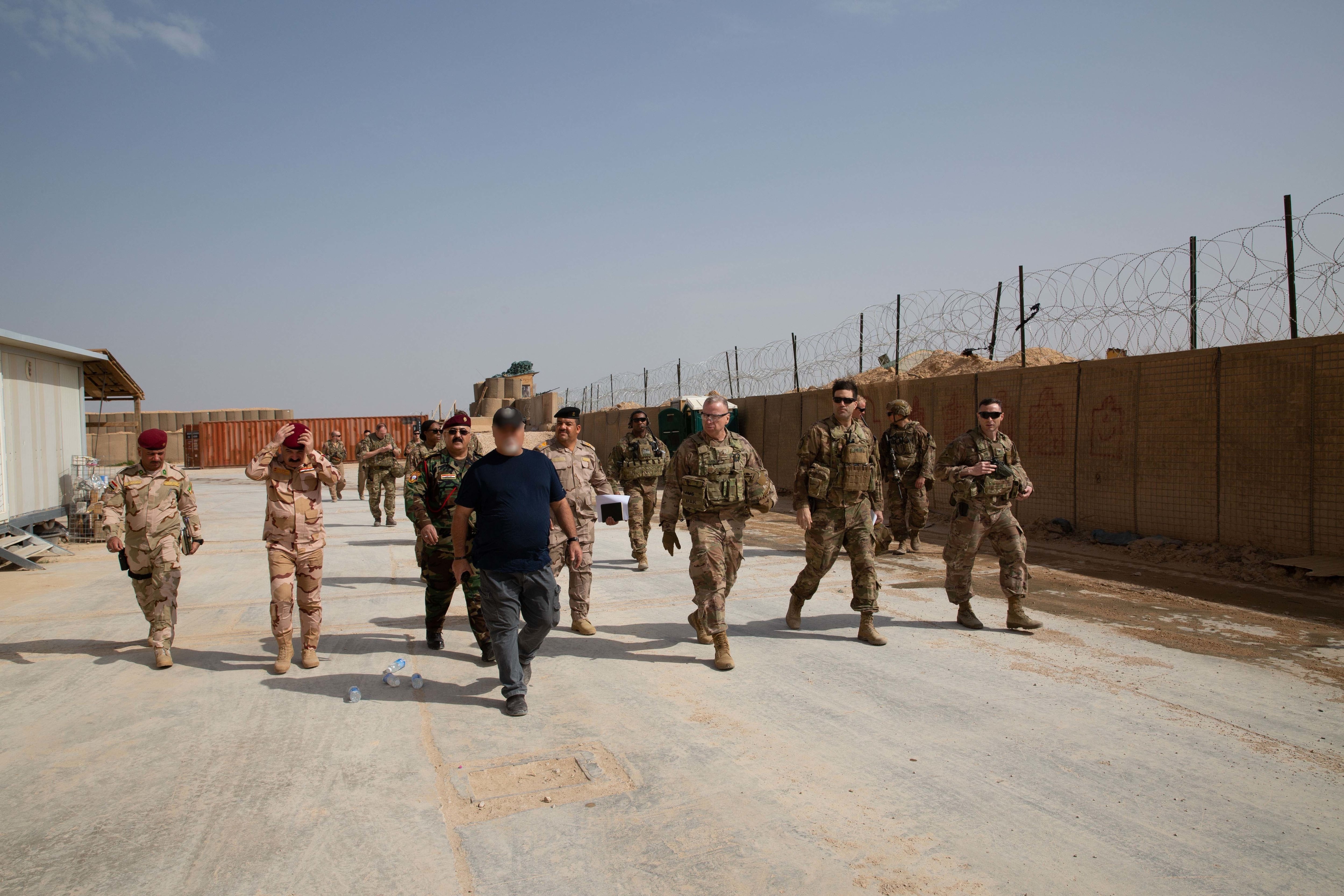An inspector general report detailed how tensions between Iran and its militia forces with the U.S. led to an accelerated transfer of several bases to Iraqi troops over force protection issues.
From March 17 to March 30 the U.S. handed over four bases to Iraqi forces, to include an airfield near Mosul and a strategic outpost near the Iraq-Syria border known as al-Qaim. In April the coalition handed over a fifth base, Taqaddum air field, which fell outside the reporting quarter for the IG report.
Operation Inherent Resolve — the U.S.-led mission to defeat ISIS in Iraq and Syria — detailed in several news releases that the base transfers were long planned in advanced and were the result of successful operations against ISIS.
RELATED

But in a recent IG report, the coalition admitted the base transfers — while long planned in advanced — were accelerated “in some part due to increased threats presented by malign actors.”
OIR told the IG that the “nascent threat of malign actors” and the “change in focus from [defeat-ISIS] operations to force protection" resulted in a force posture change.
OIR noted that a coalition task force “discontinued face-to-face interaction with their Iraqi partners, and ground travel to partner locations halted, ' which reduced OIR’s “visibility into partner force activity.”
The transfers came amid tensions with Iran following a January U.S. decapitation strike that killed Iranian Quds Force commander Qassem Soleimani and a subsequent retaliatory ballistic missile strike launched by Iran that wounded dozens of American troops stationed on two Iraq bases.
Iran-backed militias continued deadly rocket attacks targeting coalition troops housed across Iraq bases. Two U.S. troops and a British service member were killed when more than a dozen rockets slammed Camp Taji in March.
“This base transfer occurred amid force protection concerns sparked by escalating tensions between the United States and Iran and its proxy militias, which CJTF-OIR [Combined Joint Task Force-Operation Inherent Resolve] said led to an acceleration of the long-term transfer plan,” Sean W. O’Donnell, the acting inspector general for the DoD said in IG report.
OIR told the IG that “the frequency and increasing lethality of these attacks” from “malign actors” resulted in the U.S. shifting priorities from defeat ISIS to force protection.
The DoD Office of the Undersecretary for Policy, International Security Affairs told the IG that the coalition’s shift to force protection “diminished” support to Iraqi force and “probably sowed doubt within the ISF [Iraqi Security Forces]” whether support would return.
There was another factor as well.
The IG report also detailed that COVID-19 caused disruptions for Iraqi and Syrian partner forces. Iraqi forces paused training while Syrian Democratic Forces paused operations against ISIS fighters due to the pandemic.
OIR told the IG that it “resumed most relationships” with Iraqi forces over a four-week period but not all relationships returned to “pre-pause levels.”
OIR reported a decrease in some visibility of the OIR mission since the consolidation of forces, according to the report.
Shawn Snow is the senior reporter for Marine Corps Times and a Marine Corps veteran.





